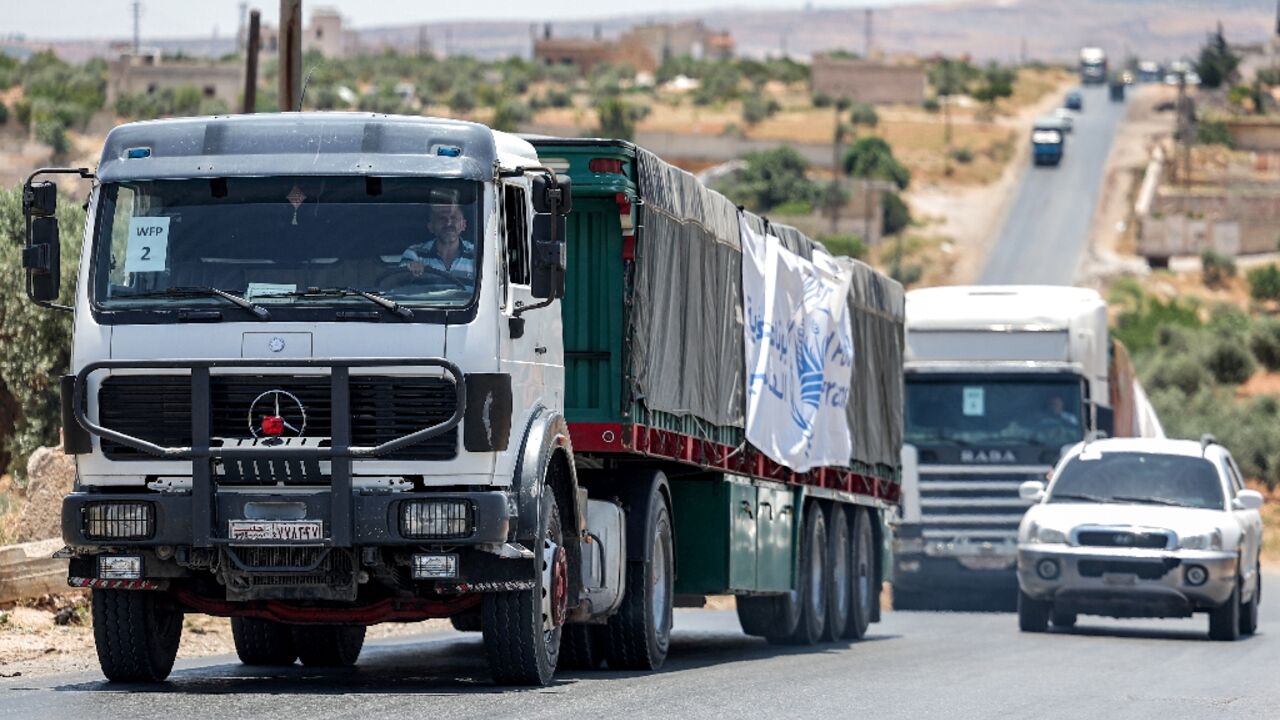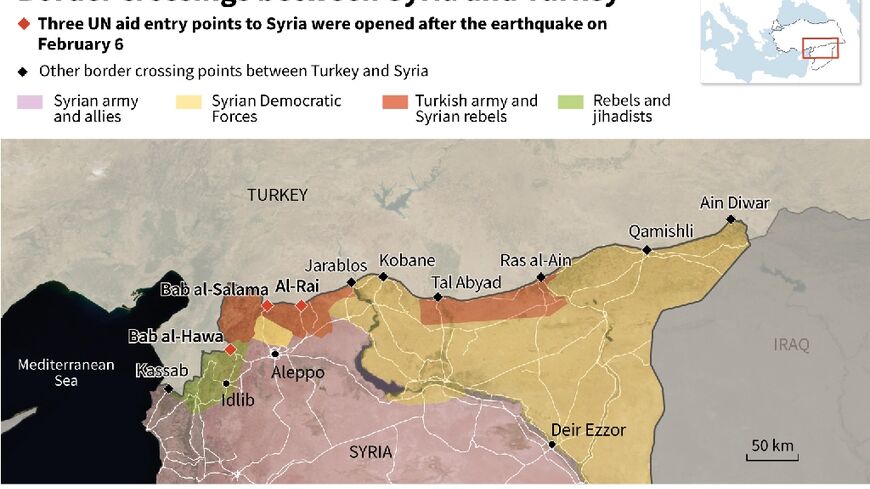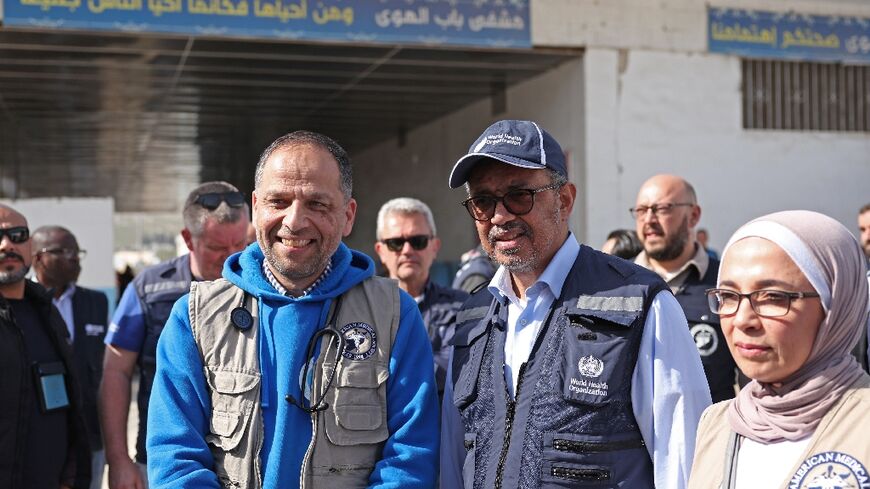UN convoy crosses from Syria regime areas to rebel-held Idlib

United Nations aid transited Friday from regime-controlled northwest Syria to rebel-held areas for the first time since a devastating February earthquake, an AFP correspondent and a humanitarian official said.
The correspondent saw the 10-truck convoy reach rebel-held Al-Nayrab in Idlib province from the direction of regime-held Saraqib, headed for storage facilities near the Turkish border.
The last such convoy was in January, according to a humanitarian official in Idlib who requested anonymity as they were not authorised to speak to the media.
The trucks were covered with banners bearing the name and logo of the UN World Food Programme, the correspondent said.
The UN Office for the Coordination of Humanitarian Affairs (OCHA) said on Twitter the "cross-line convoy is underway, carrying UN humanitarian supplies" to northwest Syria.
A February 6 earthquake devastated parts of Turkey and Syria, including areas of the war-torn country's Idlib region that are controlled by jihadist group Hayat Tahrir al-Sham (HTS).
Around three million of people, most of whom have been displaced by Syria's war, live in HTS-controlled parts of the Idlib region.
On February 10, President Bashar al-Assad's regime said it had approved the delivery of humanitarian aid directly from government-held territory to rebel areas, but HTS head Abu Mohammed al-Jolani refused assistance through such a route.
The UN largely delivers relief to Syria's northwest via neighbouring Turkey through the Bab al-Hawa crossing -- the only way for aid to enter without Damascus's involvement.
The number of UN-approved crossings has shrunk from four in 2014 after years of pressure from regime allies China and Russia at the UN Security Council.
The UN chief said on February 13 that Assad had agreed to open the Bab al-Salama and Al-Rai crossings from Turkey to allow aid to enter rebel-held areas for an initial period of three months.
Syria in May extended access for those two crossings, which are operated by Turkish-backed rebels, for another three months, OCHA said at the time.
Syria's war has killed more than half a million people and displaced millions since erupting in 2011 with a brutal crackdown on anti-government protests.
Despite periodic exchanges of deadly fire, including in recent days, a ceasefire deal brokered by Moscow and Ankara has largely held in the northwest since March 2020.





